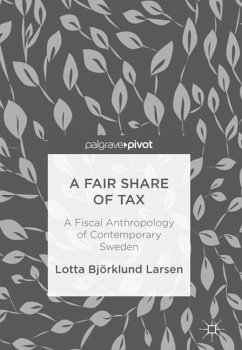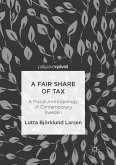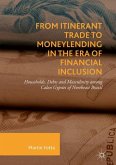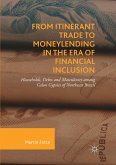This book is open access under a CC BY 4.0 license.
This book takes a taxpayer's perspective on the relations taxation creates between people and their state. Björklund Larsen proposes that in order to understand tax compliance and cheating, we have to look beyond law, psychological experiments and surveys to also include tax collectors and taxpayers' practices. The text explores the view of taxes seen as citizen's explicit economic relation to the state and implicit economic relation to all other compatriots. Björklund Larsen directs our gaze onto the concept of reciprocity, which is often proposed as an explanation in tax compliance research, and explores its diverse meanings and implications ethnographically.
The empirical cases are based on ethnography from two opposing tax practices in Sweden. Firstly, from a study of analysts, auditors, legal experts and managers at the Swedish Tax Agency and how they, quite successfully, strive for legitimacy in their tax collecting activities. Secondly, from fieldwork among a group of middle-aged Swedes and how they justify their purchasing work off the books - essentially tax-cheating practices. Sweden is a modern welfare society with citizens holding rational and secular values, yet trusting their government and fellow citizens. Sweden also has a high tax burden that is collected by one of its most revered governmental agencies - the Swedish Tax Agency - making it an interesting case studying tax compliance.
This book takes a taxpayer's perspective on the relations taxation creates between people and their state. Björklund Larsen proposes that in order to understand tax compliance and cheating, we have to look beyond law, psychological experiments and surveys to also include tax collectors and taxpayers' practices. The text explores the view of taxes seen as citizen's explicit economic relation to the state and implicit economic relation to all other compatriots. Björklund Larsen directs our gaze onto the concept of reciprocity, which is often proposed as an explanation in tax compliance research, and explores its diverse meanings and implications ethnographically.
The empirical cases are based on ethnography from two opposing tax practices in Sweden. Firstly, from a study of analysts, auditors, legal experts and managers at the Swedish Tax Agency and how they, quite successfully, strive for legitimacy in their tax collecting activities. Secondly, from fieldwork among a group of middle-aged Swedes and how they justify their purchasing work off the books - essentially tax-cheating practices. Sweden is a modern welfare society with citizens holding rational and secular values, yet trusting their government and fellow citizens. Sweden also has a high tax burden that is collected by one of its most revered governmental agencies - the Swedish Tax Agency - making it an interesting case studying tax compliance.
"The monograph provides thorough insight into the practises of the Swedish Tax Agency and the considerations of taxpayers when deciding whether or not to be tax compliant. Due to the topical nature of the matter at hand it should be of interest to a broader audience." (Yvette Lind, British Tax Review, Issue 2, 2021)









